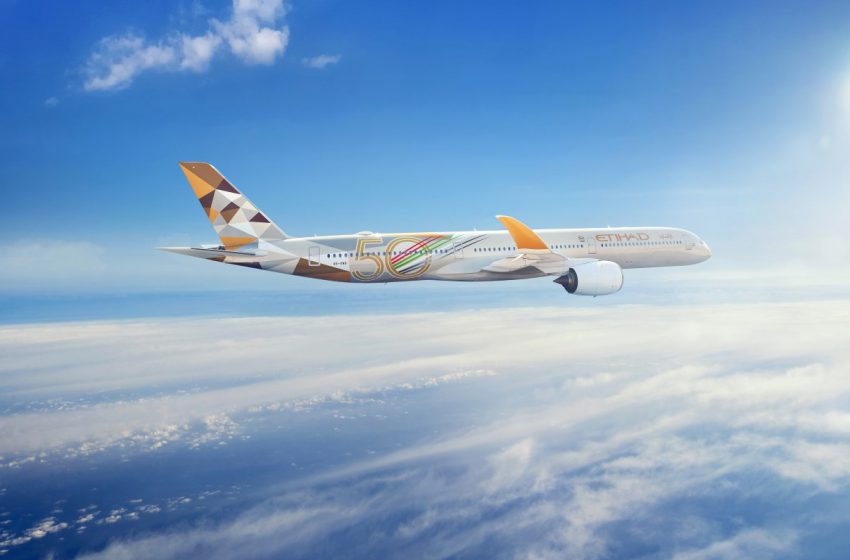Etihad Airways leads sustainable aviation with week of intensive flight tests to reduce carbon emissions

Etihad Airways, the national carrier of the United Arab Emirates, is undertaking a week of intensive research and testing on over 30 flights to test operational efficiencies, technology and procedures that will reduce carbon emissions, in an expansion of its ongoing sustainability flight testing programme.
The week-long programme, coinciding with Earth Day on 22nd April, includes over 20 commercial flights operating across Etihad’s network to test contrail avoidance technologies, in partnership with SATAVIA, a UK-based green aerospace company.
The airline will also operate up to 13 dedicated ‘EcoFlights,’ testing a range of flight and engine optimisation initiatives, with successful trials to be incorporated into regularly scheduled operations. Each of these flight tests will be conducted on Etihad’s fleet of fuel-efficient A350 and 787 aircraft, spearheaded by the ‘Etihad Greenliner’, and Etihad’s newest aircraft, the ‘Sustainable 50’.
“Etihad has demonstrated its commitment to sustainability over the last three years, leading the industry through real world testing and application of technology and processes that provide incremental environmental benefit every time we fly. The tests we’re conducting this week are just the latest initiatives in our long running and comprehensive sustainability programme, because for us, sustainability is a priority every day, not just once a year when it’s convenient and expected. The results we develop will add to the body of work and knowledge base we’ve built to support the aviation industry on its journey to decarbonisation,” said Tony Douglas, Group Chief Executive Officer, Etihad Aviation Group.
The bulk of tests conducted over the week are part of a year-long partnership with SATAVIA to enable contrail prevention by integrating atmospheric modelling with operational flight planning to prevent contrail formation. Aircraft contrails, or condensation trails, are clouds made up of aircraft-generated ice crystals which cause a net surface heating effect globally by trapping atmospheric heat. Contrails cause up to 60 percent of aviation’s total climate impact, the equivalent to two percent of all human impact.
“Our understanding of contrails rests on decades of atmospheric science, which can now be combined with high-performance computer modelling to identify contrail formation zones and optimise flight plans for contrail prevention. Following these tests, we will work with Etihad to quantify the climate benefit arising from contrail prevention on a flight-by-flight basis. This will lay the groundwork for future conversion into tradable carbon credits, incentivising widespread adoption of contrail prevention across the aviation sector,” said Dr. Adam Durant, CEO of SATAVIA.
Through these programmes, and Etihad’s ongoing research and testing initiatives such as EcoFlights, Etihad encourages and invites partners from across the aviation sector to join and test sustainability initiatives on scheduled 787 and A350 operations. The results are then processed and validated, with the most sustainable initiatives used as a base for improving the performance of the global airline community.
WAM


